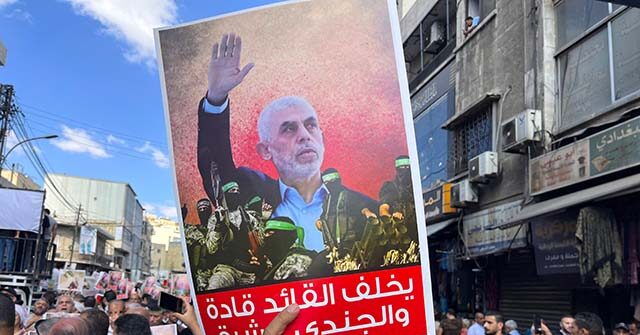In a recent discussion surrounding the ongoing Israel-Hamas conflict, a high-ranking Israeli official made bold statements regarding the implications of Yahya Sinwar’s death, declaring it a pivotal moment in the battle against Hamas. Sinwar, a vital military leader for the terrorist organization, was noted as a significant barrier to negotiations and a figure who commanded respect among the ranks. The Israeli official asserted that Sinwar’s demise could lead to a decline in morale among Hamas leaders and potentially prompt local commanders to surrender, along with the hostages scattered throughout Gaza. This shift in the dynamics of power within Hamas is positioned as a key opportunity for Israel to not only enhance its military strategy but also to facilitate the safe return of hostages.
The Israeli representative expressed optimism about the possibility of achieving better outcomes for hostages in light of recent events. With Sinwar’s removal, the official claimed that former barriers to communication and negotiation with Hamas had diminished. Unlike in the past, when negotiating with Sinwar was deemed impossible, the absence of centralized leadership might present fresh avenues for potential resolutions or surrenders from local commanders. The official argued that, contrary to fears that a fragmented Hamas would pose risks to hostages, the weakened state of Hamas could actually improve the chances for their release. As the Israeli government contemplates its next steps, these developments are seen as influential in reshaping negotiations and strategy.
Moreover, the discussion highlighted an uncompromising stance regarding the safety of Hamas’ political leaders, particularly those residing in Qatar. The Israeli official warned that not even their luxury havens would provide security, underscoring the risks faced by Hamas leaders in the wake of an Israeli military strategy aimed at dismantling terrorism. While there were questions about Qatar’s role in negotiating hostage releases, the official expressed skepticism about the effectiveness of external pressures on a disoriented Hamas leadership. Ultimately, it seems that Israel is prepared to focus on its military objectives rather than relying heavily on international mediators.
Beyond the immediate context of hostages and military leadership, the official framed the conflict as a broader “clash of civilizations.” This perspective stresses the ideological battle between fundamentalist extremism and values associated with freedom and life, particularly those aligned with Judeo-Christian principles. By invoking comparisons to historical conflicts, such as World War II, the Israeli official articulated a belief in confronting terrorism through decisive military action rather than diplomatic negotiations that lead to prolonged conflict. The implications of this philosophy extend not just to Hamas, but also to other regional threats, particularly Iran, which the official described as a destabilizing force in the Middle East.
The discussion of Iran’s role in regional instability highlighted a shared concern among moderate Arab states, which view Iranian influence as a threat. The official delineated Iran’s long-standing enmity toward both the United States and Israel, noting that its aggressive posture also endangers neighboring countries. Thus, the conflict’s ramifications extend beyond Israel, affecting the geopolitical stability of the entire region. The official made it clear that the fight against Iranian aggression is a collective responsibility that extends to the United States, reflecting a desire for a united front against terrorism and instability.
Finally, there was a significant shift in Israeli Prime Minister Benjamin Netanyahu’s rhetoric, as he indicated that the fate of the hostages may dictate the future of the conflict. Netanyahu’s assertion that hostages would be spared while those actively harming them would face elimination suggests a dual approach of military action coupled with strategic diplomacy. This broader context framing the Israel-Hamas conflict, as well as its implications for U.S.-Israel relations and the recovery of hostages, illustrates the complexities engaged by military decisions and ideological battles, all while hinting at possible pathways toward achieving lasting peace in the tumultuous region. The Israeli official’s remarks conclude with a resolve to respond decisively to Iranian provocations, ensuring that Israel remains vigilant while navigating the evolving situation on the ground amidst ongoing military operations against Hamas.

